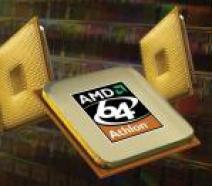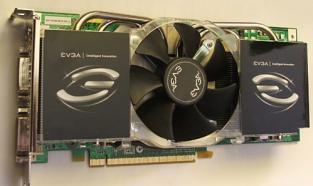OOPS! You forgot to upload swfobject.js ! You must upload this file for your form to work.
In 2018, the market for 7-nm semiconductors will begin to heat up
![]()
|
xtreview is your : Video card - cpu - memory - Hard drive - power supply unit source |
|
|||
|
|
||||
 Recommended : Free unlimited image hosting with image editor
Recommended : Free unlimited image hosting with image editor
|
POSTER: computer news || IN 2018, THE MARKET FOR 7-NM SEMICONDUCTORS WILL BEGIN TO HEAT UP |
DATE:2017-06-17 |
|
|
In recent weeks, leading manufacturers of semiconductors made a number of statements about the preparation for the release of chips with technological standards of 7 nm. This is a very important point. The process technology with the norms of 10 nm, like the technical process with the norms of 20 nm, will be a short-term phenomenon in the semiconductor market. Soon and long enough, the ball will be ruled by 7-nm chips. Contract manufacturers are interested in presenting a process technology that would better meet the needs of developers. It should also be noted that the 7-nm process technology will for the first time partially use the EUV-range scanners. This is a costly first step, but it will pay off later in the mass production of microchips, since it will reduce the number of photomasks per layer from four to five to one. Our colleagues from the Internet resource DigiTimes have released a short analytical note on the manufacturers' readiness to switch to a 7-nm process technology, which we'll talk about. TSMC is one of the first companies to start mass production of 7-nm products. In the second quarter this year, TSMC launched a risky production of 7-nm products, gaining 12 digital projects at this stage. Apparently, one of them belongs to the company Qualcomm, which allegedly decided to abandon the services of Samsung at this stage. Mass production of 7-nm TSMC chips will begin in the first half of 2018. Maybe in the first quarter. In 2019, a Taiwanese contractor is about to begin production of the second generation of 7-nm chips with partial use of EUV-scanners. Samsung also plans to begin mass production of 7-nm products in 2018. It is a year before TSMC intends to begin using the EUV-projection, which should also happen in 2018. This is likely to delay the appearance of Samsung's 7-nm offer on the market, but will allow it to make a more profitable offer for customers. Instead of the early start of the 7-nm (7LPP) production, the South Korean manufacturer will present in early 2018 the latest traditional process technology with 8 nm (8LPP). In 2019 the company expects to introduce technical processes with the norms of 6 nm (6LPP) and 5 nm (5LPP), and also to prepare for the risky production in 2020 of the 4 nm process technology (4LPP). GlobalFoundries will launch a risk-based production with 7 nm (7LP) in the first half of 2018. Serial 7-nm chips will begin to go off the company's pipelines in the second half of 2018. In particular, AMD is now betting on them. The company GlobalFoundries also plans to use EUV-lithography, but does not specify exact terms. You can expect that this will happen either in 2019 or in 2020. Intel company is still staying away from the 7-nm mainstream. It is assumed that the release of 7-nm products, it will not begin before 2020. | ||
|
|
||
|
xtreview is your : Video card - cpu - memory - Hard drive - power supply unit source |
|
|
|
|
||
|
Xtreview Support  N-Post:xxxx Xtreview Support        |
IN 2018, THE MARKET FOR 7-NM SEMICONDUCTORS WILL BEGIN TO HEAT UP |
| Please Feel Free to write any Comment; Thanks  |
The new version of GPU-Z finally kills the belief in the miracle of Vega transformation (2017-09-08)
We are looking for copper coolers on NVIDIA Volta computing accelerators (2017-09-08)
Unofficially about Intels plans to release 300-series chipset (2017-09-08)
AMD Vega 20 will find application in accelerating computations (2017-09-08)
AMD Bristol Ridge processors are also available in American retail (2017-09-07)
duo GeForce GTX 1080 Ti in GPUPI 1B at frequencies of 2480-10320 MHz (2017-09-07)
New Kentsfield overclocking record up to 5204 MHz (2017-09-07)
Advertising Radeon RX 570 for 279 dollars AMD caused a storm of emotions (2017-09-07)
The European Court sent Intel case on abuses for reconsideration (2017-09-07)
Huawei overtook Apple and became the second largest smartphone manufacturer in the world (2017-09-07)
Twelve-core Core i9-7920X lost the lid in front of the photographic lens (2017-09-06)
In exchange for increasing the stake in the joint venture with Toshiba, Western Digital Corporation is ready to refuse to participate in the auction (2017-09-06)
China banned the creation of new ICO crypto-currency and ordered to return the money for the created one (2017-09-06)
The six-core processor Intel Coffee Lake lit up at a Chinese auction (2017-09-06)
Budget Android-smartphone Xiaomi certified in China (2017-09-06)
Delivery of virtual reality seats Roto VR will begin in late October (2017-09-05)
Compact systems Intel NUC based on Coffee Lake will be released in the second quarter of 2018 (2017-09-05)
Asustek increases its share in the segment of expensive motherboards (2017-09-05)
Ilon Mask believes that the third world war can begin artificial intelligence (2017-09-05)
The six-core processor Intel Coffee Lake has conquered the frequency of 5.0 GHz (2017-09-05)
![]()
To figure out your best laptops .Welcome to XTreview.com. Here u can find a complete computer hardware guide and laptop rating .More than 500 reviews of modern PC to understand the basic architecture


7600gt review
7600gt is the middle card range.
We already benchmarked this video card and found that ...

 geforce 8800gtx and 8800gts
geforce 8800gtx and 8800gts  Xtreview software download Section
Xtreview software download Section  AMD TURION 64 X2 REVIEW
AMD TURION 64 X2 REVIEW  INTEL PENTIUM D 920 , INTEL PENTIUM D 930
INTEL PENTIUM D 920 , INTEL PENTIUM D 930  6800XT REVIEW
6800XT REVIEW  computer hardware REVIEW
computer hardware REVIEW  INTEL CONROE CORE DUO 2 REVIEW VS AMD AM2
INTEL CONROE CORE DUO 2 REVIEW VS AMD AM2  INTEL PENTIUM D 805 INTEL D805
INTEL PENTIUM D 805 INTEL D805  Free desktop wallpaper
Free desktop wallpaper  online fighting game
online fighting game  Xtreview price comparison center
Xtreview price comparison center Lastest 15 Reviews


Rss Feeds
Last News
- The new version of GPU-Z finally kills the belief in the miracle of Vega transformation
- The motherboard manufacturer confirms the characteristics of the processors Coffee Lake
- We are looking for copper coolers on NVIDIA Volta computing accelerators
- Unofficially about Intels plans to release 300-series chipset
- The Japanese representation of AMD offered monetary compensation to the first buyers of Ryzen Threadripper
- This year will not be released more than 45 million motherboards
- TSMC denies the presentation of charges from the antimonopoly authorities
- Radeon RX Vega 64 at frequencies 1802-1000 MHz updated the record GPUPI 1B
- AMD itself would like to believe that mobile processors Ryzen have already been released
- AMD Vega 20 will find application in accelerating computations
- Pre-orders for new iPhone start next week
- Radeon RX Vega 57, 58 and 59: the wonders of transformation
- ASML starts commercial delivery of EUV-scanners
- The older Skylake processors with a free multiplier are removed from production
- Meizu will release Android-smartphone based on Helio P40
- AMD Bristol Ridge processors are also available in American retail
- The fate of Toshiba Memory can be solved to the next environment
- duo GeForce GTX 1080 Ti in GPUPI 1B at frequencies of 2480-10320 MHz
- New Kentsfield overclocking record up to 5204 MHz
- Lenovo released Android-smartphone K8

HALO 3 HALO 3 - Final Fight!

PREY Prey is something you don t often see anymore: a totally unigue shooter experience.

computer news computer parts review Old Forum Downloads New Forum Login Join Articles terms Hardware blog Sitemap Get Freebies


